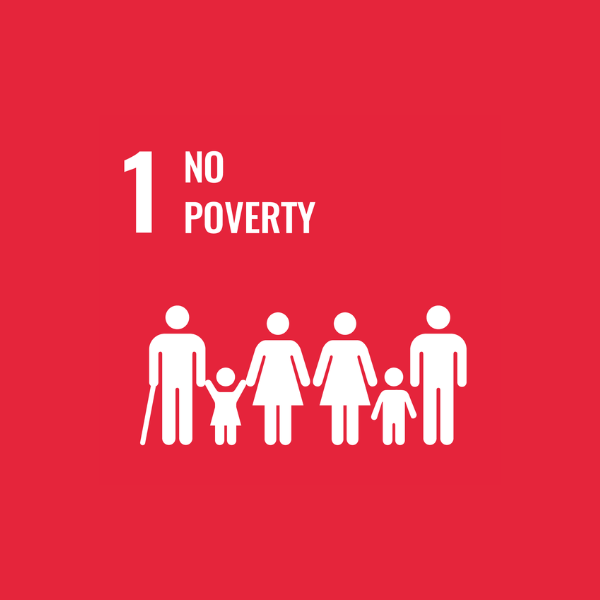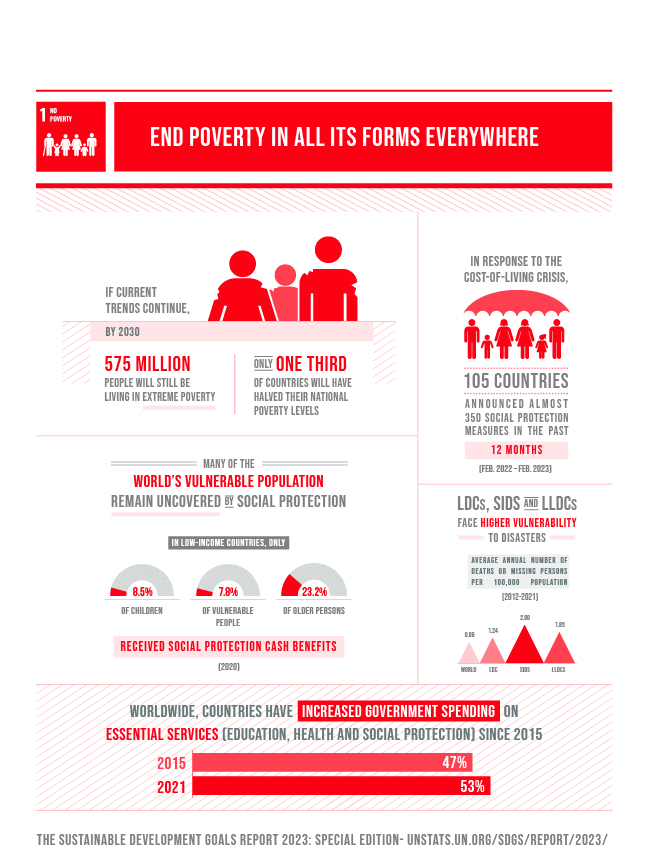End poverty in all its forms everywhere

Since 2015, global poverty reduction was already slowing down and the impacts of the COVID-19 pandemic reversed three decades of steady progress with the number of people living in extreme poverty increasing for the first time in a generation.
Recovery from the pandemic has been slow and uneven as the world is presently facing multiple geopolitical, socioeconomic, and climatic risks. Given current trends, 575 million people (nearly 7% of the world’s population) will still be living in extreme poverty in 2030 compared to 800 million in 2015 (or 10.8%).
Eradicating extreme poverty will be particularly difficult in sub-Saharan Africa and conflict-affected areas. Despite the expansion of social protection during COVID-19, over 4 billion people globally remain entirely unprotected. A surge in action and investment to enhance job opportunities and extend social services to the most excluded is crucial to delivering on the central commitment to ending poverty.

Our Work in This Area




Interested in partnering?
Join us on our UN SGD mission
Partner with us and commit to a more sustainable future.






